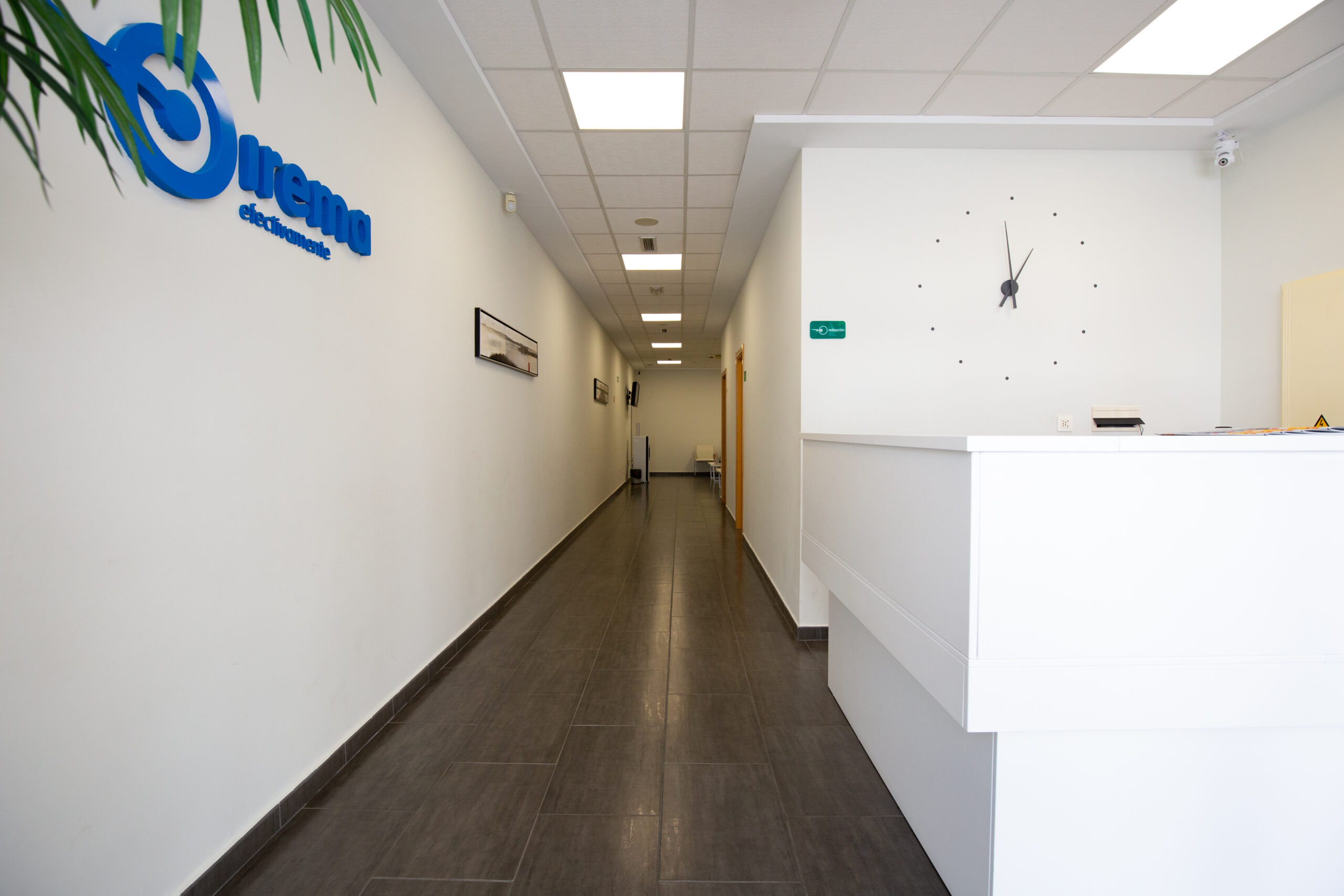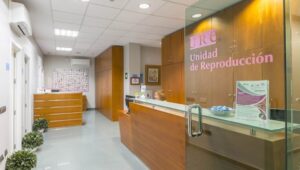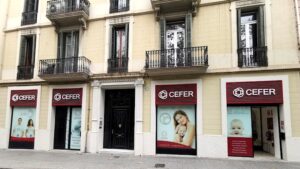Tillgänglighet för IVF-behandling hos IREMA
| IVF på Fertilitet och assisterad befruktning IREMA - restriktioner | |
|---|---|
| Kvinna högsta ålder | 50 |
| Ensamstående kvinna | Tillåtet |
| Kvinnliga par av samma kön | Tillåtet |
| HIV (kvinna) | Tillåtet |
| HIV (man) | Tillåtet |
| HCV / HBV (kvinna) | Tillåtet |
| HCV / HBV (man) | Tillåtet |
Om IREMA
IREMA grundades 2005 och har kliniker i både Beniarbeig i Alicante och Gandia i Valencia, och båda klinikerna är utrustade med den modernaste tekniken för assisterad befruktning som finns. Tack vare sin mångåriga erfarenhet och expertis tilldelades IREMA utmärkelsen Best Fertility Clinic 2015, och med så många IVF-kliniker är detta ingen liten bedrift.
Kliniken har ett brett utbud av behandlingsalternativ och tack vare detta kan de erbjuda dig en personligt anpassad behandling. Vad det innebär är att istället för en plan som passar alla, kommer de att undersöka dig och din partner, samt din medicinska historia, för att upptäcka grundorsaken till dina infertilitetsproblem. När detta är gjort bestämmer de vilka specifika behandlingar som fungerar bäst i just ditt fall och utarbetar en plan som är skräddarsydd för dina behov och krav.
Som nämnts ovan har kliniken ett brett utbud av behandlingar tillgängliga, varav några är:
- Behandling med spermier från en partner. Om din partner har friska och fertila spermier kommer du att genomgå behandling med dessa om du vill.
- Behandling med donerade spermier. Om du inte har någon partner eller om din partners spermier har låg rörlighet eller ett lågt antal spermier, kan du behöva använda en donator för att genomgå din behandling.
- ICSI. Det kallas Intracytoplasmatisk spermieinjektion och är en behandling som används när spermierna har problem med att ta sig till ägget. Spermierna injiceras då direkt med hjälp av avancerad teknik för att ytterligare öka chanserna för graviditet.
- Äggdonation. Om du har problem med infertilitet på grund av dina egna ägg kan kliniken ordna en donator åt dig för att se till att det finns friska och fertila ägg tillgängliga.
- Preimplantatorisk genetisk diagnostik är ett test som utförs på embryon före implantation. Syftet med testet är att säkerställa att det inte finns några genetiska defekter eller abnormiteter i embryot som kan ha en negativ inverkan på dess utveckling, och på så sätt säkerställa att endast friska embryon implanteras. Det här är ett mycket viktigt test eftersom det kan hjälpa dig att få en friskare graviditet, tack vare att bara de bästa embryona implanteras.
- Reciprok IVF (ROPA) är avsedd för par där alla är kvinnor och som vill ha ett barn tillsammans. Behandlingen kallas Reciprocal IVF eftersom en av kvinnorna donerar sina ägg och den andra får äggen implanterade, vilket innebär att båda kvinnorna är direkt involverade i graviditeten och ingen av dem kommer att känna sig utanför.
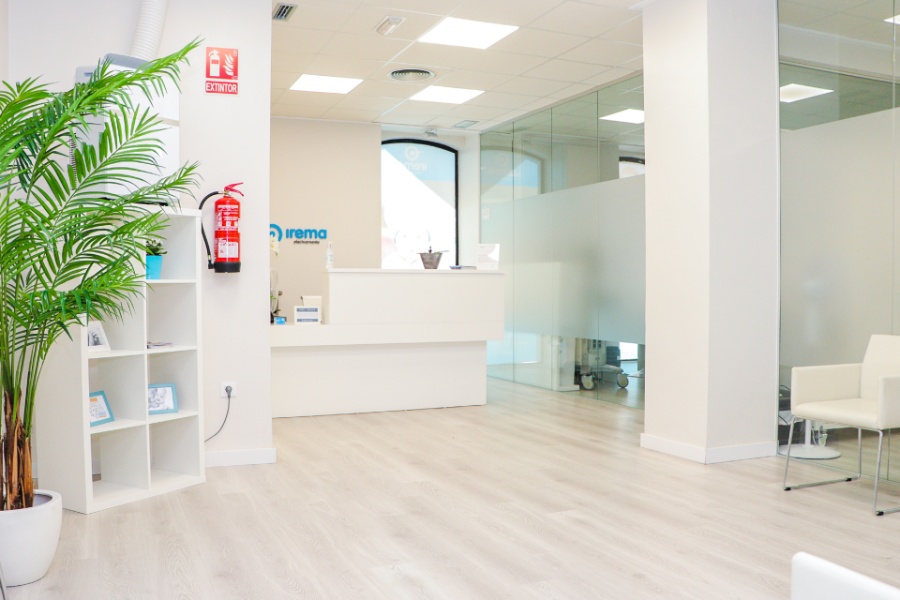
När det gäller äggdonation är alla donatorer i Spanien anonyma enligt lag, och därför finns det fler tillgängliga donatorer än i länder där anonymitet inte garanteras. Du behöver inte oroa dig för äggens hälsa eftersom alla donatorer genomgår omfattande tester för att säkerställa att de är så friska som möjligt och att deras ägg är fertila. Förutom dessa tester registreras också deras egenskaper, så att kliniken när det är dags att matcha dig med en donator kan välja en donator som matchar dig så nära som möjligt i utseende och blod.
Ett annat mycket viktigt test som kliniken utför är genetisk matchning. När par väljer att gå samman och skaffa barn kan det vara en underbar och magisk upplevelse, men det finns en fråga som kan orsaka problem längre fram, och det är genetisk inkompatibilitet. På grund av hur DNA fungerar finns det många människor i världen vars DNA inte är kompatibelt med varandra, och när ett barn föds som ett resultat av detta kan det orsaka problem längre fram, tack vare recessiva gener och ärftliga sjukdomar. Med hjälp av det genetiska matchningstestet kan kliniken avgöra om det finns några okända faktorer som kan ha en negativ inverkan på graviditeten, och de kan vidta åtgärder för att se till att det inte blir ett problem.
Du kanske vill läsa om matchning mellan givare och mottagare i den här artikeln: Att hitta den perfekta matchningen mellan äggdonator och mottagare | Ett samtal med Dr. Verónica på IREMA.
IREMA:s erfarenhet och medicinska team
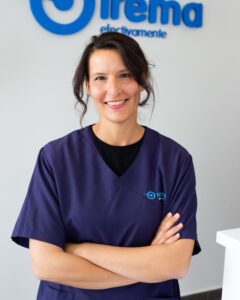
Den medicinska chefen för kliniken är Dr Verónica Serrano De la Cruz Delgadoär specialist i gynekologi och obstetrik och har en masterexamen från universitetet i Valencia, där hon studerade assisterad befruktning och endoskopisk kirurgi. Hon är känd för att vara vänlig och lyhörd för sina patienters behov, vilket leder till att hon vinner deras förtroende och därmed kan ge en mer öppen och ärlig behandling. Lär känna dr Veronica, läs intervjun med henne här.
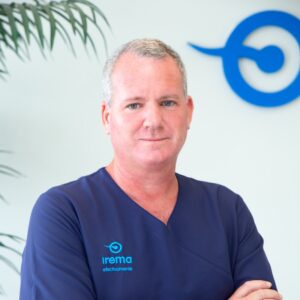
På kliniken arbetar också Dr. Fernando Hernández Lloria, Dr. Guillermo Terrado Gil och Dr. Rosana Ribes Salvador, som alla har stor erfarenhet av att behandla barnlöshet genom IVF-behandling och inget hellre vill än att hjälpa människor att förverkliga sina drömmar om att bli föräldrar.
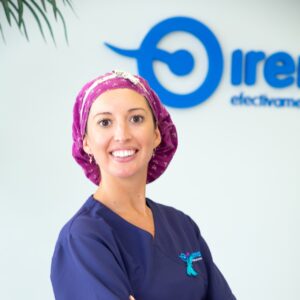
Bakom teamet med 3 läkare och 3 embryologer finns ett team av professionella medarbetare på hela kliniken, bland annat sjuksköterskor, en psykolog och patientsamordnare som alla finns där för dig under hela din behandling för att se till att den går så smidigt som möjligt.
Om du vill lära känna IREMA-teamet bättre kan vi bjuda in dig till ett insiktsfullt webbseminarium som leds av Dr Omar Zamora från IREMA om det fascinerande ämnet, "Vad är epigenetik och hur påverkar det äggdonation?" I denna session har Dr. Zamora behandlat viktiga frågor som t.ex:
- Epigenetikens roll i utvecklingen av ett barn som tillkommit genom äggdonation
- Hur mottagarens miljö och livsstil kan påverka den epigenetiska profilen och utvecklingen av det donerade ägget
- Mekanismerna för epigenetisk omprogrammering vid äggdonation och dess potentiella inverkan på ett barns hälsa och egenskaper
- Ny forskning som betonar epigenetikens betydelse inom reproduktionsmedicin, särskilt vid äggdonation
Oavsett om du överväger äggdonation eller är intresserad av vetenskapen bakom, ger detta webbseminarium värdefulla insikter i hur epigenetik kan forma resan mot föräldraskap.
Din första kontakt - Patientvårdsteamet
På IREMA är deras patientvårdsteam dedikerade till att ge medkännande och personligt stöd till varje individ på deras fertilitetsresa. Teamets medlemmar talar många språk, vilket säkerställer tydlig kommunikation och förståelse för alla patienter.
- Brigida, talar flytande både engelska och spanska,
- Katia, som talar franska och spanska,
- Natascha, duktig på spanska, holländska och engelska,
- Anna, behärskar tyska, engelska, spanska och franska,
- Alexia, som talar nederländska, spanska, engelska och tyska.
Oavsett språk eller bakgrund finns de där för att ge dig exceptionell vård och stöd varje steg på vägen.
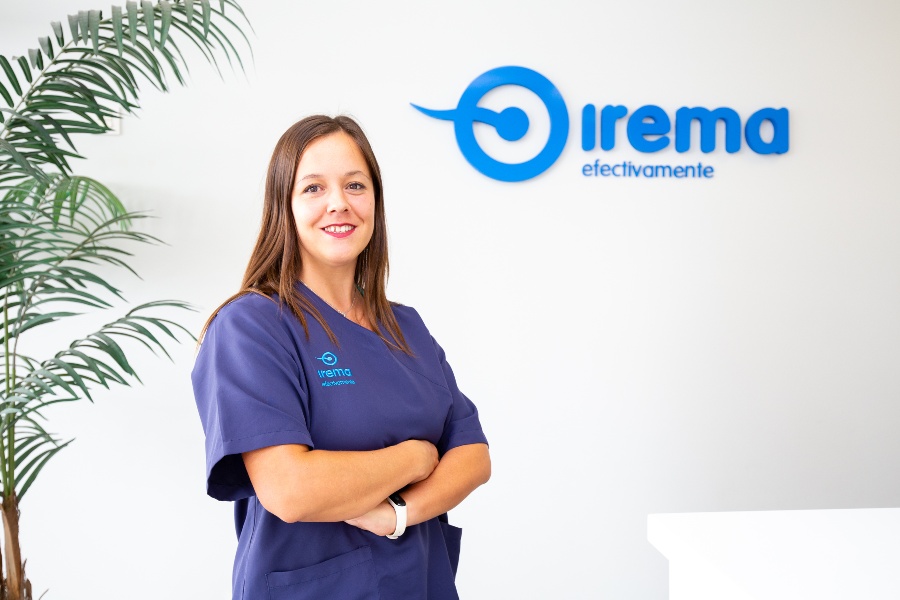
IVF-kostnader hos IREMA
På IREMA kan kostnaden för infertilitetsbehandling variera och beror på vilka behandlingar du behöver, så det finns inte ett pris för alla behandlingar. Oavsett vilken behandling du behöver kostar din första konsultation med specialisten 135 euro. Standardkostnaden för IVF är 4 150 euro. Om din behandling kräver IUI, dvs. intrauterin insemination, förväntas du betala 850 euro.
Om du behöver donerade ägg, embryon eller spermier i din behandling måste du också betala för behandlingskostnaderna. Om du behöver behandling med äggdonation kommer du att betala mellan 7 290 euro och 10 600 euro. En behandling som kräver embryodonation kostar cirka 2 950 euro. Om du behöver donerade spermier under din behandling, oavsett vilken behandling du genomgår, måste du betala 330 euro för spermierna.
| Kostnad för grundläggande IVF-paket vid Fertilitet och assisterad befruktning IREMA | |
|---|---|
| Intrauterin insemination (IUI) | €850 |
| Artificiell insemination med donator (AID) | €1,180 |
| IVF med egna ägg | €4,150 |
| Äggdonation IVF | €7,290 - €10,600 |
| Embryodonation | €2,950 |
| Frysning av ägg | €2,500 |
| Spermiedonation | €1,525 |
| ROPA | €4,790 |
| Surrogatmödraskap | N/A |
Om ni är ett lesbiskt par som vill genomgå IVF-behandling finns det ett alternativ som kallas ROPA, vilket är Reciprocal IVF, där en kvinna donerar sina ägg och den andra får äggen inplanterade och blir bärare av graviditeten. Kostnaden för denna specifika behandling är 4 790 euro.
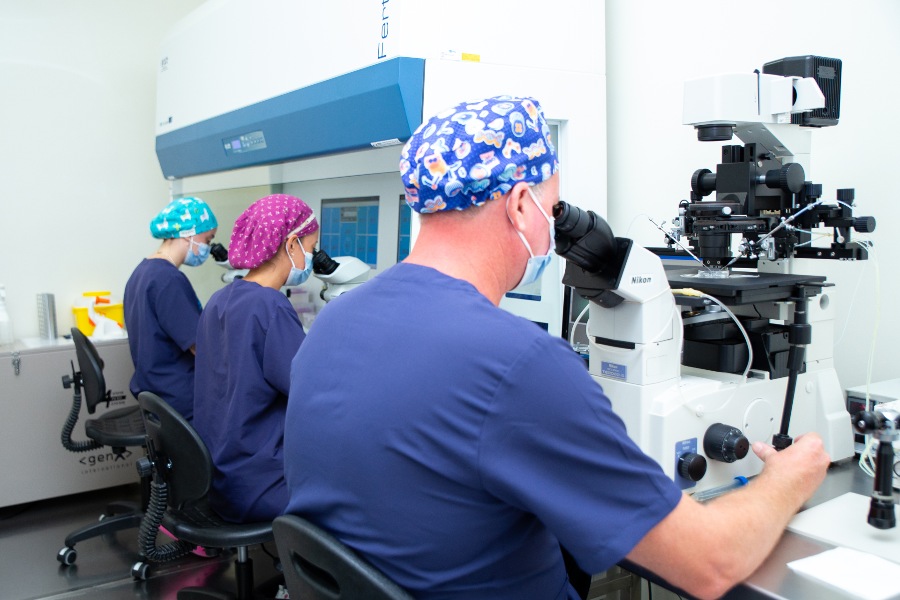
While undergoing treatment there are additional tests that can be made available should you wish. Two of these tests are Embryo Monitoring and Blastocyst culture, both of which will be included in your treatment costs. The third treatment is PGT-A/PGS testing, which is preimplantation genetic testing that is performed in order to ensure the embryos are healthy and at no risk of genetic abnormalities or diseases, the cost of this treatment is between 2,250 Euros and 3,250 Euros.
The clinic also has access to a cryobank should you need any sperm, eggs or embryos to be frozen for later use. The cost to freeze sperm is 120 Euros. If you have undergone treatment and you have embryos remaining you can pay for the vitrification and storage, for 1 year, of these embryos, which will cost 450 Euros. Should you wish to freeze one of your eggs you will be expected to pay 2,500 Euros. If, at a later date, you wish to have one of your frozen embryos implanted then you will undergo FET, which is Frozen Embryo Transfer, and the cost for this is 1,620 Euros.
IVF-tillägg och övriga kostnader
| Other IVF techniques costs at Fertility and Assisted Reproduction IREMA | |
|---|---|
| Medicinsk konsultation (läkare) | €135 |
| Donatorsperma | €330 |
| Frysning av spermier | €120 |
| Övervakning av embryon (t.ex. Embryoscope) | ingår i behandlingspriset |
| Blastocystodling | ingår i behandlingspriset |
| PGT-A / PGS genetiskt embryotest | €2,250 - €3,250 |
| Frysning och förvaring av embryon under 1 år | €450 |
| FET - överföring av fryst embryo | €1,620 |
IVF Success Rates at IREMA
In 2023, IREMA’s egg donation program reported a clinical pregnancy success rate of 71% per embryo transfer, showcasing excellent results for women and couples using donor eggs. The success rate for patients using their own eggs for IVF was 49%. However, this varied by age group:
- Patients under 35 years had a success rate of 59%.
- Those aged 35 to 40 years had a success rate of 52%.
- Women over 40 years experienced a success rate of 13%.
Furthermore, the success rate for frozen embryo transfers stood at 51%, highlighting the effectiveness of this method. Additionally, the success rate for embryo donation at the IREMA clinic was 56%.
IREMA specialists focus on blastocyst transfers, typically conducted on days 5-6 of embryo development, to maximize the conditions for successful implantation. In 2023, the clinic reported a multiple birth rate of 8%, highlighting their dedication to fostering singleton pregnancies to enhance the safety and health of both mothers and infants.
The average number of embryos transferred per procedure in 2023 was 1.11, demonstrating a careful and tailored approach to fertility treatments designed to optimize pregnancy success rates while reducing the risks of multiple pregnancies.
Furthermore, the IREMA clinic follows the guidelines set by the Sociedad Española de Fertilidad (SEF), ensuring that it meets the regulatory standards set forth in Spain.
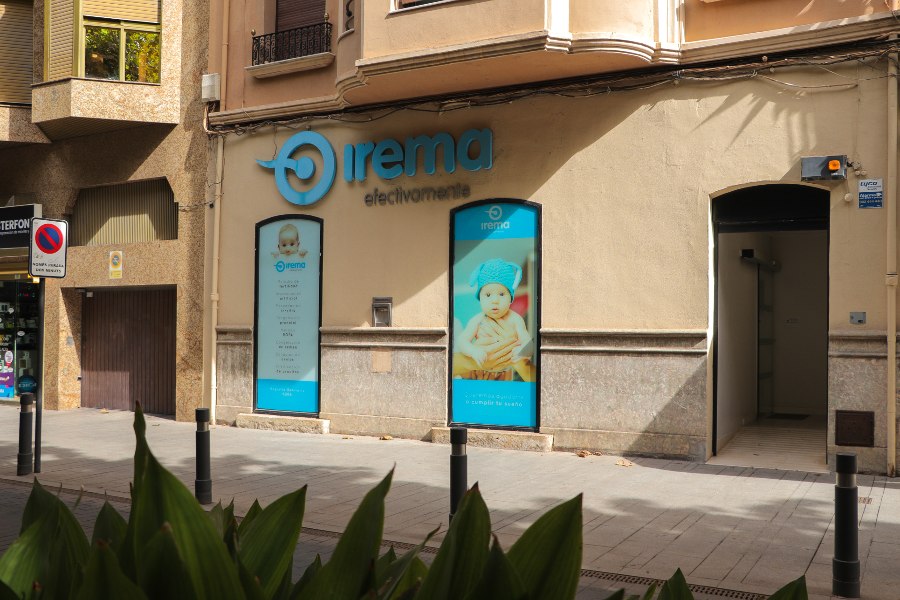
IREMA Location
The main clinic for IREMA is located in Beniarbeig, which is in Alicante. Alicante is a beautiful city by the sea and has beautiful views for you to look at. Whilst undergoing treatment you will be able to have a lovely and relaxing time, while surrounded by beauty and relative quiet, as the clinic is situated in a quiet enclave.
Only an hour from both airports in Valencia and Alicante you will be able to get to the clinic with ease, and you can either hire a car yourself or the clinic can arrange a taxi on your behalf. The clinic is in close proximity to the Ad hoc Vitae hotel, being only a short walk away, and you will be able to have a lovely 10% discount on your stay thanks to a deal they have with the clinic. If you need advice on other hotels, or apartments, in the area the clinic is more than happy to help.
